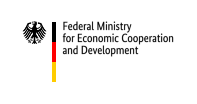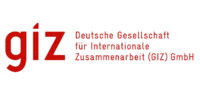Difference between revisions of "Webinar on Cooking Energy in Displacement Settings"
***** (***** | *****) m |
***** (***** | *****) m |
||
| Line 22: | Line 22: | ||
== <span style="color: rgb(3,51,130)">Q&A </span> == | == <span style="color: rgb(3,51,130)">Q&A </span> == | ||
'''All the questions asked during the webinar will be documented here in the upcoming days.''' | '''All the questions asked during the webinar will be documented here in the upcoming days.''' | ||
| − | <br/> | + | <br/> |
| + | |||
| + | ==<span style="color: rgb(3,51,130)">'''Agenda'''</span>== | ||
{| style="width:100%" cellspacing="0" cellpadding="1" border="1" | {| style="width:100%" cellspacing="0" cellpadding="1" border="1" | ||
Revision as of 06:58, 8 July 2021
COOKING ENERGY IN DISPLACEMENT SETTINGS WEBINAR SERIES |

Safe and sustainable access to cooking energy in displacement settings is a persistent challenge for the humanitarian community. As a result, displaced populations are subject to protection, health, food security risks as well as conflict over natural resources, in addition to experiencing fuel shortages and gender inequalities. It is generally assumed that the markets for energy products and services in displacement settings are at a low level, although displaced people around the world already spend more than $1.6 billion a year to light their homes and cook their food,1 as such there is a significant potential for private-sector engagement in this context, which could result in win-win scenarios for all stakeholders.2 A major constraint for increased private-sector engagement are gaps in knowledge, coordination and mutual understanding between private sector, development and humanitarian actors.
Against this background, GIZ (ESDS and EnDev), GPA and MECS are co-organising a webinar series on Cooking Energy in Displacement Settings.
Webinar 1: Cooking Energy in Displacement Settings – Landscaping
This webinar aims to provide an overview of the stakeholder landscape of the humanitarian cooking sector and to improve mutual understanding as a base for successful cooperation. It will shed light on their approaches and what are their advocating for; success factors as well as common challenges in existing cooking energy interventions.
First in the series, this webinar will feature a presentation providing an overview of the landscape of the humanitarian cooking sector followed by a moderated panel discussion. To get a holistic picture, speakers from humanitarian and development organisations, the private sector, policy consultancy and a community representative will participate in the panel.
Q&A
All the questions asked during the webinar will be documented here in the upcoming days.
Agenda
| Speakers/Organisation | |
| Introduction |
Ranisha Basnet, Energypedia |
| Overview of the humanitarian cooking sector |
Anh Tran (Modern Energy Cooking Services (MECS) |
| Panel discussion |
|
| Q&A |
All panelists |
| Final Takeaway |
Mark Gibson, Global Platform for Action (GPA) on Sustainable Energy in Displacement Settings, UNITAR |
| Closing |
Ranisha, Energypedia |
Financed by

Organised by
 |
 |
Co-organised by

|



















